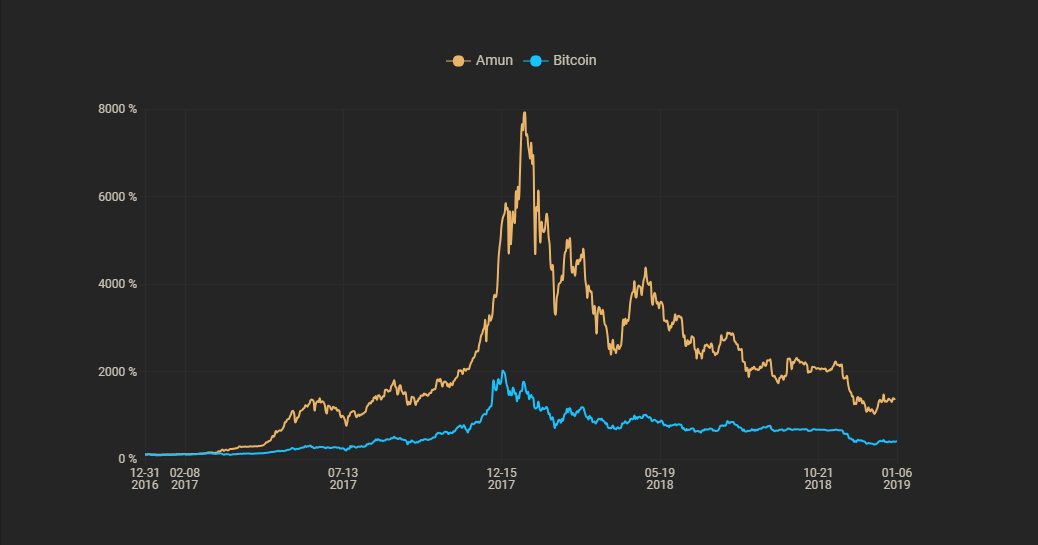It's been 10 years since Satoshi Nakamoto - whose identity/identities still remains unknown - launched Bitcoin. The US Securities and Exchange Commission (SEC) is currently considering the proposal for a Bitcoin ETF having previously rejected other proposals, however another market could also be considering launching a crypto ETF.
Japan is edging closer to issuing a Bitcoin ETF, according to Bloomberg's recent article citing somebody familiar with the matter. Japan's FSA confirms its decision to bar investment products such as Bitcoin futures or Ethereum options but is still open to the possibility of authorising a Bitcoin ETF. The financial body is currently gauging the industry's interest in a Bitcoin ETF before announcing its decision.
With potential for one of the world's biggest crypto-markets launching a Bitcoin ETF among other recent events ranging from the scrutiny of Initial Coin Offerings (ICO) to Switzerland's first crypto ETP, its worth looking at how the last 12 months has played out for cryptocurrency.
Following a three-year drought with Bitcoin not surpassing $1,000 in value, 2017 was a positive year for the coin after breaking through the barrier in February and not looking back since. The value continued to rise and accelerate to nearly $20,000 by the year's end however 2018 was to see an opposite performance.
By July 2018, the price of Bitcoin had fallen to just over $6,200, a 67 per cent drop in value. There have been several factors as to why the price dropped as dramatically as it spiked. These factors include the risks associated with Initial Coin Offerings (ICO). An ICO is similar to an IPO (Initial Public Offering) where a company wishes to launch a cryptocurrency, it attempts to justify why the digital coin will be worth something in the future so investors will invest in the 'worthless' coin in its ICO stage. This is in hope that the cryptocurrency will be worth something in the future.
ICOs are high risk as there is no guarantee the coin will be worth anything. Worse, on numerous occasions the 'companies' would take all capital received from the ICO and disappear. Investors would be left with nothing but an empty wallet and a knock to their investing confidence.
As a result, Facebook and Google, among other platforms, banned the advertisement of cryptocurrency, in particular ICOs, due to their high risk of capital loss. Unsurprisingly all cryptocurrencies faced major selloffs as the demand for the digital assets were likely to slow down.
The SEC introduced strict regulations for ICOs in its bid to prevent illegitimate launches becoming available to investors. Therefore ICOs must comply with several principles before going public. There have been numerous discussions regarding regulating cryptocurrencies in general, both in the US and the UK following the rise in volatility in the second half of 2018.
The US SEC and UK's FCA (Financial Conduct Authority) have released documents discussing the regulatory bodies' current viewpoints on cryptocurrency and priority areas for surveillance. Issues highlighted include the use of cryptocurrency for money laundering and the financing of terrorism.
Whilst regulation within crypto remains up in the air, the market still continues to develop, as more products come to the market to improve the accessibility to crypto.
In November, we saw Amun AG launch the first crypto ETP in Switzerland. The basket of cryptocurrencies named HODL, is the world's first physically backed crypto ETP, according to an article by Townsend Lansing. The index is comprised of Bitcoin, with 50 per cent of the weighting, as well as Ethereum, Ripple, Bitcoin Cash and Litecoin.

Source: Amun AG
The graph above shows HODL's returns compared to Bitcoin since the beginning of 2017. It is easier to see the decline in value of Bitcoin and the rest of the cryptocurrency market throughout 2018.
Shortly after the launch of the ETP, MVIS, which partnered with Amun for the launch of HODL, issued a Bitcoin index which tracks the price of the coin from three different exchange. This index is among the 27-strong range of crypto indices MVIS has launched. Other innovative providers have issued crypto indices in the last couple of years including Solactive issuing a Bitcoin index, late in 2017.
As Japan's FSA is now asking for the industry's opinion, the US market has shown high demand for a Bitcoin ETF with no luck so far. ETF issuer VanEck and start-up Solid X partnered back in July, submitting several proposals for the investment products but being rejected every time by the SEC. The latest proposal is still under consideration having already been postponed by the SEC due to the regulatory body 'needing more time to make its decision'.
Whilst 2018 saw a fall in value for the majority of the crypto market, many investors are still hopeful for a bull run in 2019 but there still remains a lot of ifs and buts as volatility lingers.


